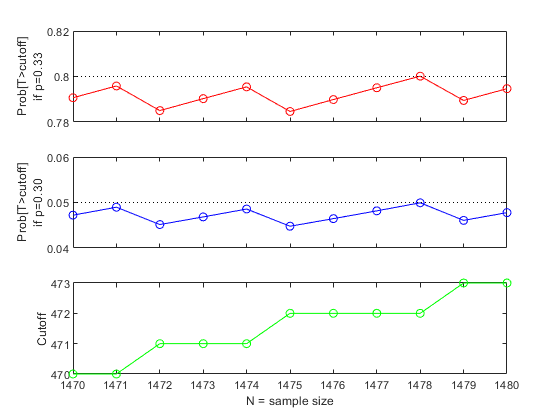假设检验
t 检验、F 检验、卡方拟合优度检验等
Statistics and Machine Learning Toolbox™ 提供参数化假设检验和非参数化假设检验,帮助您确定样本数据是否来自具有特定特征的总体。
分布检验(如安德森-达林检验和单样本科尔莫戈洛夫-斯米尔诺夫检验)可以检验样本数据是否来自具有特定分布的总体。双样本科尔莫戈洛夫-斯米尔诺夫检验可以检验两组样本数据是否具有相同的分布。
位置检验(如 z 检验和单样本 t 检验)可以检验样本数据是否来自具有特定均值或中位数的总体。双样本 t 检验或多重比较检验可以检验两组或多组样本数据是否具有相同的位置值。
散度检验(如卡方方差检验)可以检验样本数据是否来自具有特定方差的总体。双样本 F 检验或多样本检验可以比较两个或多个样本数据集的方差。
通过交叉表分析和随机性游程检验确定样本数据的其他特征,并确定假设检验的样本大小和幂。
函数
主题
- Available Hypothesis Tests
View hypothesis tests of distributions and statistics.
- Hypothesis Testing with Two Samples
Use hypothesis testing to analyze gas prices measured across the state of Massachusetts during two separate months.
- Hypothesis Test Terminology
All hypothesis tests share the same basic terminology and structure.
- Hypothesis Test Assumptions
Different hypothesis tests make different assumptions about the distribution of the random variable being sampled in the data.
